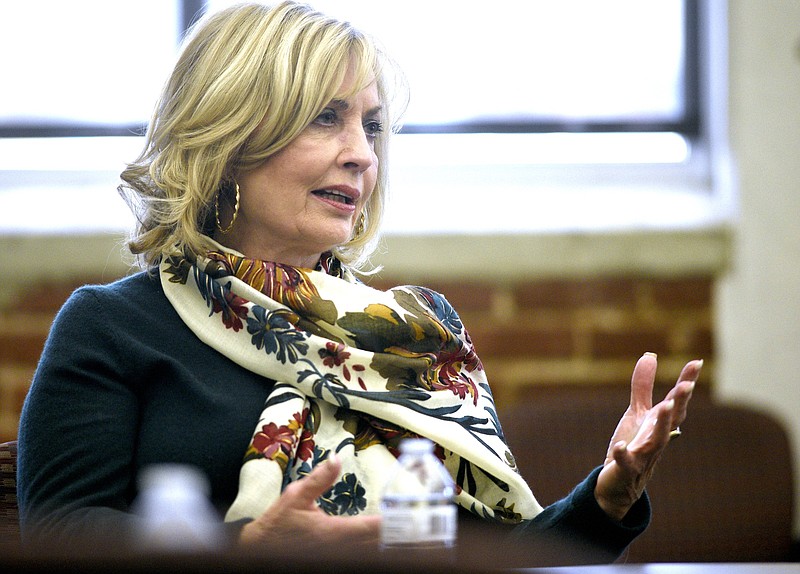NASHVILLE - It has widespread support from her colleagues with a lengthy list of co-sponsors including the Tennessee House speaker.
But state Rep. Patsy Hazlewood's bill to create a two-month sales tax holiday on grocery food purchases is now in limbo for months until Tennessee lawmakers take final action this spring on the state's annual budget.
House Finance, Ways and Means Subcommittee Chairman Gary Hicks, R-Rogersville, listed as a co-sponsor of the Signal Mountain Republican's HB1697, noted the bill "does have a cost. I look forward to working with her to see this bill come to fruition."
"Feel free to pass it," Hazlewood, vice chairwoman of the full Finance Committee, dryly observed.
Instead, the bill was moved "behind the budget." It means that because of its substantial cost - $88 million - to the state, the panel is parking the bill until action starts on the $40.8 billion annual spending plan recommended by Republican Gov. Bill Lee for fiscal year 2020-21.
Only then will the panel return to Hazlewood's legislation. And that hinges on whether there's any money left after the state's spending plan is set.
Lee's administration has already let Hazlewood know it's not in support of the measure, which eliminates the state's 4% sales tax on grocery foods during the entire months of June and July.
Half of the bill's total $88 million in costs would would occur in June, which falls within the current fiscal year. The remaining $44 million in July falls into the still-unpassed fiscal 2020-21 spending plan.
Lee's budget estimates one-time surpluses for both fiscal years at a combined $1 billion.
During her presentation, Hazlewood observed that in recent years, the GOP-led General Assembly has substantially cut hundreds of millions of dollars of taxes and fees. The list includes the continuing phase out of the Hall Income Tax on individuals' income from stocks and bonds and reductions in business taxes. Last year, lawmakers cut the professional privilege tax for many professions.
"We've done a very good job in reducing franchise and excise taxes for businesses," Hazlewood told colleagues, saying she applauded the move because it "encouraged businesses to come here and grow here. It's made us more competitive with surrounding states."
Those and other reductions have been beneficial, she said.
"But," Hazlewood added, "what we haven't done is find a way to put money back in the pocket of everyday Tennesseans - and that's what this bill would do."
The bill wouldn't effect local sales taxes on food, which can be as high as 2.75%, nor would it harm cities and counties on state shared taxes. Eliminating the 4% state portion would amount to $4 on a $100 food bill.
"I recognize this may not be a huge savings" in the view of those who come from a "privileged background," Hazlewood said. "But I think for some Tennesseans this will have a major impact," citing the working poor with children to feed. "It will make a difference for Tennesseans."
She said she chose the months of June and July because officials with local food banks told her that would benefit the poorest Tennesseans whose school-age children have no access to free-and-or-reduced price lunches and breakfasts provided by school programs.
Finance Subcommittee Reps. Brandon Ogles, R-Franklin, and Larry Miller, D-Memphis, praised the legislation, with Miller adding he wouldn't mind making it permanent.
Ogles told Hazlewood if the Lee administration raises any "flags" to the bill, it "should be known it has strong bipartisan appeal. This is not just a piece of legislation, it's a statement of both parties."
Contact Andy Sher at asher@timesfreepress.com or 615-255-0550. Follow him on Twitter @AndySher1.
